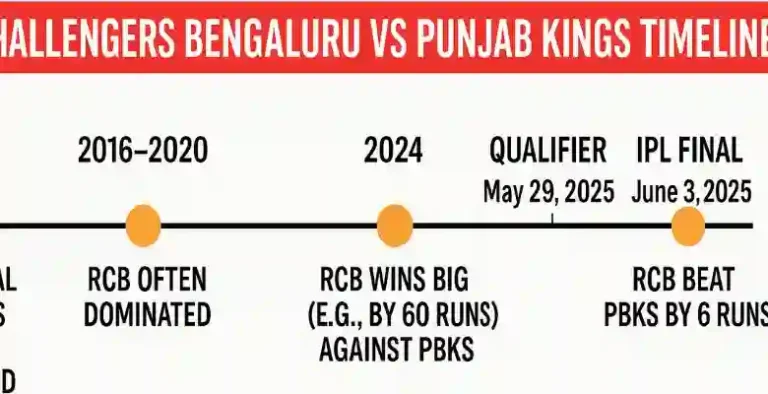
VIPLeague
VIPLeague sounds like an exclusive club. But for many sports and entertainment fans, VIPLeague is a doorway — a digital corridor to live broadcasts, highlights, and sports streams. In this essay, I explore the origins, mechanics, controversies, and alternatives surrounding VIPLeague. We’ll walk through real-world anecdotes, analyze its place in media ecosystems, and leave you with clear takeaways.
What Is VIPLeague and How Did It Emerge?
A Brief Origin Story
The story of VIPLeague begins in the era when cord-cutting and piracy collided. As streaming platforms proliferated, some users sought free alternatives. VIPLeague first surfaced around the early 2010s as one such streaming aggregator, linking to live sports, TV, and entertainment channels.
It relied not on hosting content, but on indexing streams. In many ways, it mirrored peer-to-peer sharing platforms of the past — acting as a directory of links rather than a traditional broadcaster. Over time, it evolved, acquired mirror sites, and adopted a shifting web presence to evade takedowns.
Why It Attracted Users
The appeal of VIPLeague lies in accessibility and breadth. For users unwilling or unable to pay for multiple subscriptions, VIPLeague offered central access to soccer matches, NBA games, UFC events, and international television channels.
One anecdote: a small town in rural Peru had only limited options for English Premier League broadcasts. A high school teacher, after searching, found VIPLeague and shared it with students. Overnight, the habit of “checking VIPLeague before kickoff” spread like wildfire among them.
That scenario illustrates the deeper pull: for many, VIPLeague streaming became a daily ritual — a digital habit woven into fandom.
How VIPLeague Works — Architecture & Risks
From Directory to Stream Hub
Technically, VIPLeague functions as an aggregator. It curates external stream sources (some legitimate, others dubious) and displays an interface for users to choose. The platform doesn’t usually host video files itself — although mirror sites or clones sometimes attempt to cache small clips.
From an engineering perspective, it’s a content index served with ads, pop-ups, and rotating domains. To remain online, VIPLeague often shifts domain names, uses CDN services, and mirrors itself across multiple sites.
Legal and Security Hazards
Behind the allure of free streaming lies risk. For one, many of VIPLeague’s streams violate copyright laws. Users may inadvertently consume pirated content, which exposes them and the platform to legal liability.
Secondly, security is a concern. Some VIPLeague mirrors push malware, forced redirects, or malicious adware. Users have reported pop-up windows masked as “You’ve won a prize” or prompts to install suspicious applications.
A friend once clicked a “VIPLeague download app” button, and his mobile days later glitched. He had to factory reset his phone. In short: using VIPLeague carries more than just moral peril — it can carry technical danger.
Evaluating the Pros and Cons
Strengths and Appeal
-
Cost-free access: Perhaps the biggest draw is zero subscription fees.
-
Wide content variety: From soccer to WWE, from international TV to niche sports, VIPLeague covers many genres.
-
Ease of use: A simple interface lets users browse by sport or channel.
-
Global reach: Viewers in regions with limited broadcasting rights may turn to it as a workaround.
The Trade-Offs
-
Unreliable streams: Links may break midgame or vanish unexpectedly.
-
High ad burden: Pop-ups, auto-plays, and layered adverts degrade quality.
-
Uncertain legality: Watching or sharing unauthorized streams can be unlawful in many jurisdictions.
-
Safety threats: As mentioned, malware or phishing risks.
If I were narrating a Malcolm Gladwell story: VIPLe ague is like the “dark market” of streaming — tempting, resourceful, but filled with unseen costs and perils.
Safer Alternatives & How to Watch Responsibly
Legal Streaming Platforms
Many users are transitioning away from risky sites toward legitimate services. Popular platforms include:
-
ESPN+, DAZN, and Peacock for U.S. sports
-
Sky Sport, BT Sport, and beIN for European leagues
-
Netflix, Hulu, and Amazon Prime Video for general entertainment
These platforms invest in licensing, broadcast infrastructure, and content rights — benefits that VIPL eague cannot sustainably provide.
Hybrid Strategy: Use Trials, Geo-Deals, and Bundles
You don’t always have to pay full price. Some strategies:
-
Use free trials to catch specific matches
-
Combine bundles (e.g. sports add-ons with streaming plans)
-
Employ VPNs legally (when allowed) to access regional rights
In this way you reduce the temptation to revert to VIPL eague live streaming while respecting rights holders and protecting your device.
Stories from the Field
To ground the discussion, consider two contrasting stories:
The Hustler’s Gamble
A student in Germany, missing his home’s soccer channel, turned to VIPLeague. He pressed “HD stream” repeatedly until he found a working link. But one night the page redirected to a malicious site. His laptop was infected, and he lost university assignments. The cost: months of recovery — far more than a streaming subscription.
The Turning Point
A retired teacher in South Africa was a longtime VIPLeague user. But after encountering broken links during a major final and realizing the unpredictability, he switched to a legal alternative. The extra $10 per month felt like insurance. He told me: “Now I watch without anxiety. I guarantee a real stream — no pop-ups.”
These stories illustrate the two sides of the coin: short-term thrill or long-term peace.
Best Practices for Those Considering VIPLeague
-
Use strong ad-blockers and script blockers. They reduce exposure to malicious ads.
-
Avoid clicking “download app” offers. VIPL eague does not officially have safe apps.
-
Scan your device. Use antivirus software if you visited risky links.
-
Check your local laws. In some countries, accessing pirated streams is a punishable offense.
-
Transition gradually. Start with a single legal sports subscription; then compare reliability.
A guiding metaphor: climbing a ladder. Each rung must be secure. If VIPL eague is a rickety top rung, aim to step down to something solid and credible.
FAQs
Is VIPLeague legal to use?
A1: In most countries, watching copyrighted content without rights-holder permission is against the law. VIPLeague’s streams often fall into that category. Some users argue it’s “just viewing,” but many jurisdictions treat it as infringement.
Q2: Does VIPL eague work on mobile devices or smart TVs?
A2: Some mirror domains offer mobile-friendly interfaces, but many streams are blocked or broken on smart TV browsers. Compatibility is inconsistent.
Q3: Are there safe VIPLeague apps?
A3: No verified, legitimate app has been released by VIPL eague. Downloading any “VIPL eague app” risks malware or device compromise.
Q4: What are trustworthy alternatives to VIPLeague?
A4: Use licensed platforms such as ESPN+, DAZN, beIN, or local broadcasters. Many have low-cost plans and official rights to streams.
Q5: Can VPNs make VIPL eague safer?
A5: A VPN may hide your IP, but it doesn’t eliminate the legal or malware risks. It’s not a full safeguard.
Conclusion & Final Thoughts
VIPLeague occupies a shadowy space in the streaming cosmos — alluring for its free access, yet fraught with legal, technical, and moral risks. Its longevity depends not on legitimacy but on evasion. Over time, the user’s experience deteriorates: broken links, malware, and uncertainty become the norm.
The real insight is this: convenience without structure is often fragile. Fans want reliable, high-quality streams and peace of mind. That is precisely what licensed platforms provide. As more users migrate toward safer alternatives, the role of VIPL eague streaming may shrink in the long run.






